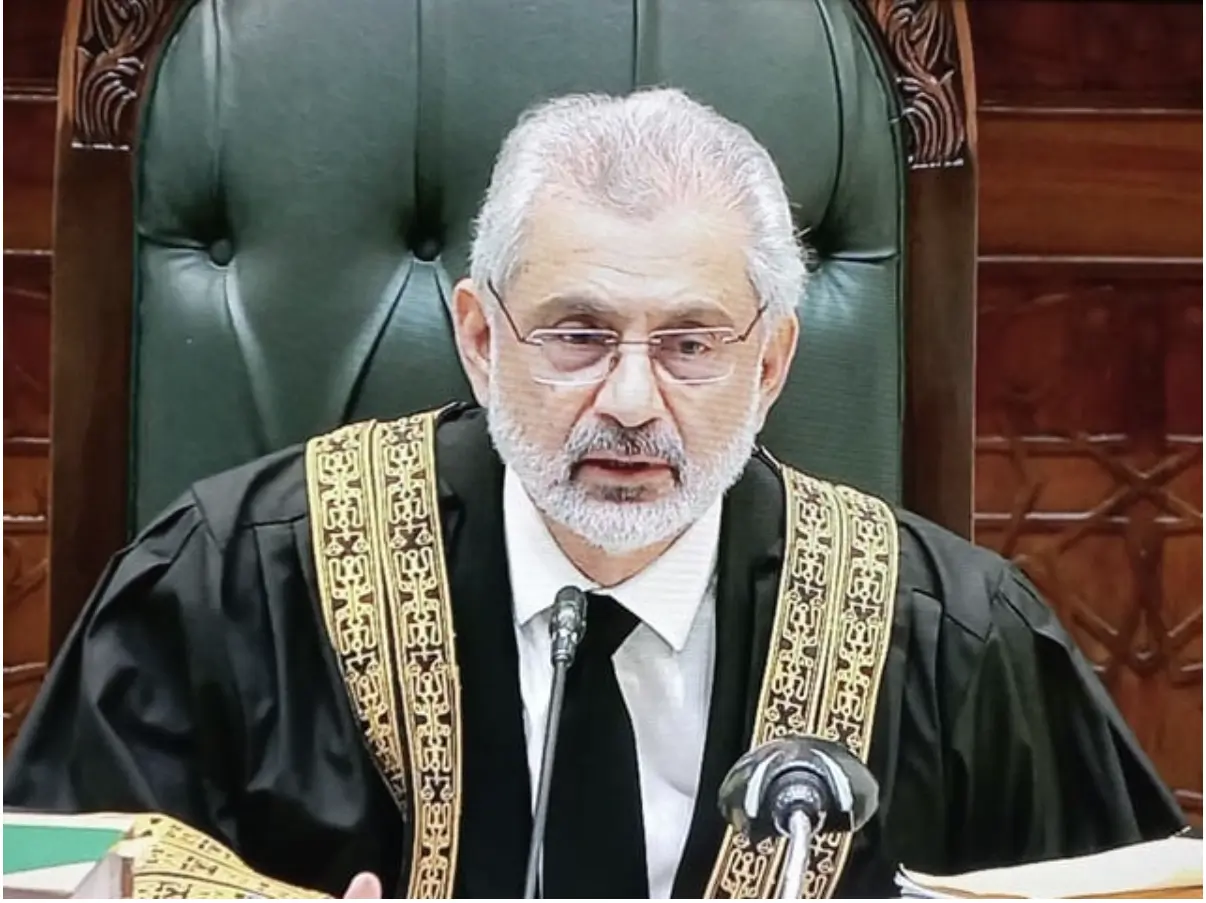|
Getting your Trinity Audio player ready...
|
In the ongoing legal proceedings in Pakistan, CJP Qazi Faez Isa voiced concerns over the imposition of a lifetime disqualification from parliament, contending that it goes against Islamic principles. The Supreme Court is addressing discrepancies in the Election Act of 2017, particularly Article 62(1)(F) of the Constitution, which deals with the lifetime disqualification of lawmakers. The case involves Sardar Meer Badshah Khan Qaisrani, a former PML-N provincial lawmaker, who contested his lifetime disqualification in 2007 due to a fake degree.
Led by CJP Isa, the seven-member bench is seeking clarity on whether the disqualification period is five years, as per the 2017 amendment, or a lifelong ban under Article 62(1)(F). The proceedings were broadcast live to avoid confusion for returning officers in upcoming elections. CJP Isa invoked Islamic teachings, highlighting the Quran’s recognition of the elevated status of humans and arguing that a lifetime disqualification contradicts the possibility of repentance.
CJP Isa contended that labeling individuals as permanently disqualified is subjective and lacks constitutional clarity. He warned against filing cases in different courts, creating hurdles for the February 8 elections. The fate of several politicians, including Nawaz Sharif and Jahangir Tareen, hangs on the court’s decision regarding their eligibility to contest elections.
The court grappled with arguments from lawyers, including Khurram Raza, who supported lifetime disqualification and suggested a constitutional amendment to address the issue. Attorney General for Pakistan Mansoor Usman Awan and appointed amici curiae also presented their perspectives.
The debate centered on whether the 2018 ruling in the Samiullah Baloch case, defining disqualification under Article 62(1)(F) as “permanent,” could be nullified and if Parliament had the authority to challenge the court’s verdict through legislation. Faisal Siddiqui argued that while the court defined the disqualification period, the mechanism was flawed.
The court adjourned the hearing, emphasizing the need for a comprehensive resolution to the constitutional issue. The case has broader implications, affecting politicians’ eligibility and interpreting Article 62(1)(F). CJP Isa’s emphasis on Islamic principles adds a unique dimension to the legal discourse, framing the debate within a cultural and religious context.
As the proceedings continue, the decision will significantly shape the political landscape in Pakistan, determining the scope and duration of lawmakers’ disqualification, and addressing the apparent conflict between legislative amendments and judicial pronouncements.
Read More: Dusk News

